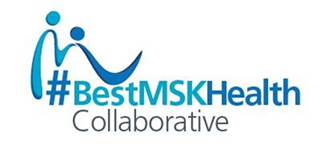 by Dr Chloe Stewart, health psychologist and national clinical advisor in personalised care, NHS England
by Dr Chloe Stewart, health psychologist and national clinical advisor in personalised care, NHS England
It’s strange how certain moments in life stay with you, etched in your memory while others disappear forever. Sometimes the things we remember are not the big things but small and seemingly insignificant moments. I remember a distinct moment during my health psychology training, some twenty years ago now, when I realised just how much more needs to be done to ensure a shift in power between healthcare professionals and patients. Perhaps this resonated with me due to my own experience of accessing treatment for an eating disorder in my teenage years. Since then, I have spent most of my career advocating for proactive, holistic person-centred care where people are supported to play an active role in their care and treatment.
I was pleased to see the Secretary of State launch his ‘Road to Recovery’ document in March, building on the ambitions of the NHS Long Term Plan where personalisation is one of the key priorities in NHS reform.
We have all seen how the pandemic has had an unprecedented impact on services, with lost activity and increased waiting lists. In addition, it has shone a light on inequalities that exist in our communities and that a higher incidence of MSK conditions exists in areas of higher deprivation. We know that what has got us here will not get us to where we want to go. We will need to work collectively to address the broad needs of the most excluded groups, to reduce barriers in accessing support and build trust. Using a community asset-based approach will be essential.
Key will be embedding the core components of personalised care. This means making sure that collaborative relationships between patients and professionals, shared decision making and supported self-management support are at the heart of MSK integrated services.
![]() We must do this by co-designing services with people living with MSK conditions. What informed patients want from health services and what we think they want are often very different! I had the pleasure working alongside an incredible group of clinicians and patient partners at Sussex MSK Partnership Central who were able to demonstrate the difference that personalised care and strategic co-production can make.
We must do this by co-designing services with people living with MSK conditions. What informed patients want from health services and what we think they want are often very different! I had the pleasure working alongside an incredible group of clinicians and patient partners at Sussex MSK Partnership Central who were able to demonstrate the difference that personalised care and strategic co-production can make.
 I am now delighted to be working within the BestMSK Health Programme at NHS England as a national clinical specialist advisor in personalised care. With stakeholders, including Sue Brown, CEO of ARMA, and lived experience partners, we are developing guidance and toolkits to support the implementation of supported self-management in primary and community care for people living with MSK long term conditions. These will advocate for access to health coaching, peer support, self-management education and social prescribing.
I am now delighted to be working within the BestMSK Health Programme at NHS England as a national clinical specialist advisor in personalised care. With stakeholders, including Sue Brown, CEO of ARMA, and lived experience partners, we are developing guidance and toolkits to support the implementation of supported self-management in primary and community care for people living with MSK long term conditions. These will advocate for access to health coaching, peer support, self-management education and social prescribing.
Together as a MSK community we must integrate shared decision making across MSK services. The Care Quality Commission (CQC) national surveys tell us that only five in 10 people feel as involved as they want to be in decisions about their care. Involving people in decisions results in fewer decision regrets, better relationships with clinicians, improved experience and outcomes. An accurate ‘preference diagnosis’ is just as important as an accurate medical diagnosis in identifying the right treatment option, i.e. understanding what matters to each person and their individual preferences and values. Every option for treatment has a unique profile of risks, benefits, and side effects. Healthcare professionals cannot recommend the right treatment without understanding how the patient values the trade-offs.
I was a committee member for NICE in the development of the shared decision making implementation guidance. NICE recommend use of Decision Support Tools (aka patient decision aids) as one part of an overall toolkit to support shared decision making. Decision Support Tools are of particular value where the decisions have a high evidence base and also a high degree of preference sensitivity.
The personalised care team at NHS England has developed a suite of new decision support tools, four of which are related to MSK conditions (including tools for decisions related osteoarthritis of the hip, osteoarthritis of the knee, carpel tunnel and dupuytren’s). These valuable resources will be available soon.
There is more to do to ensure everyone living with MSK conditions can access proactive, holistic, preventative and person-centred care when they need it. I am sure there will be many challenges to come, but the strength and optimism of our MSK community gives me the confidence that we will rise to the challenge and achieve optimal best MSK health for all.
